Key takeaways:
- Self-directed learning promotes independence, allowing individuals to pursue education based on personal interests and passions.
- Goal-setting and self-assessment are essential principles that facilitate effective self-directed learning and personal growth.
- Using digital platforms and project-based learning enhances engagement and helps solidify understanding in a practical context.
- Creating a structured study schedule and engaging with a community of learners can significantly improve motivation and comprehension.
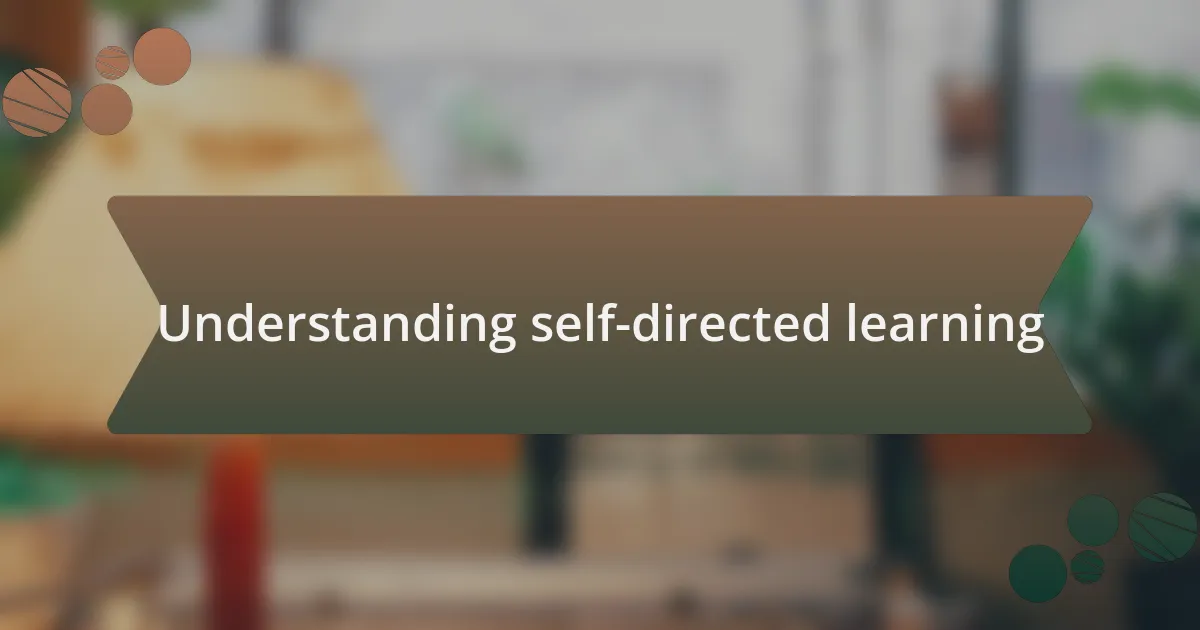
Understanding self-directed learning
Self-directed learning is all about taking control of your own educational path. I remember when I first decided to learn a new programming language on my own. I woke up one day with a desire to understand how software is built, and that spark ignited a journey fueled by curiosity rather than a structured classroom environment.
One aspect that fascinates me is how self-directed learning fosters independence. I often find myself reflecting on the countless late nights spent researching topics that interested me deeply, diving into resources and forums where others shared their experiences. Isn’t it empowering to realize that your education can stem from personal interests and passions, rather than a predetermined curriculum?
At its core, self-directed learning encourages us to set our own goals and timelines. I vividly recall feeling a mix of excitement and anxiety as I charted out a learning plan, mindful of the flexibility that came with it. Is there anything quite as thrilling as knowing you are the architect of your own knowledge? Embracing this approach has shown me the importance of self-motivation and accountability, which are vital for navigating our ever-evolving world.
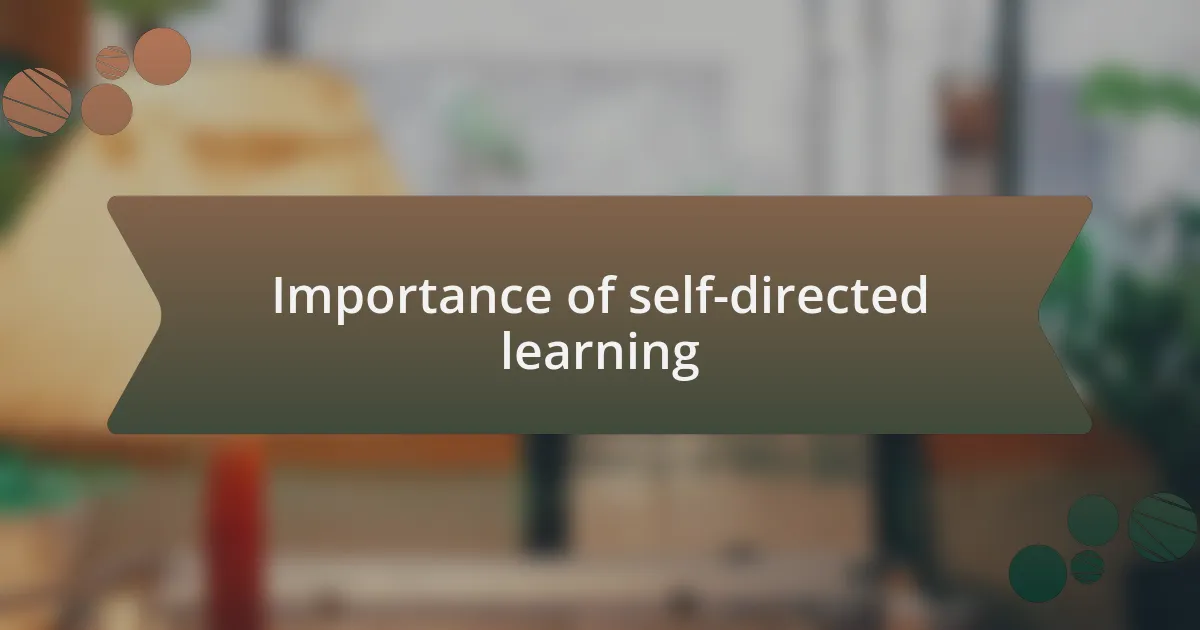
Importance of self-directed learning
Self-directed learning stands as a crucial pillar in today’s fast-paced world. I often think back to when I began delving into graphic design. With no formal education in the field, I relied on online tutorials and forums, allowing my creative instincts to flourish. Isn’t it incredible how much we can achieve when we take the reins of our own learning journey?
Another significant aspect is adaptability. I encountered a time when my initial learning materials didn’t resonate with me, and rather than feeling defeated, I pivoted. I sought out new resources that truly spoke to my style and pace. This adaptability has not only broadened my skill set but has also taught me that understanding how I learn best is just as important as the knowledge itself.
Moreover, self-directed learning nurtures a lifelong love for education. I can recall moments when I stumbled upon unexpected topics during my independent studies, igniting new passions that I never anticipated. Have you ever felt that rush of discovery that comes from exploring a subject outside your initial intent? It’s those moments that remind me education isn’t confined to a classroom; it’s an adventurous spirit we can carry with us throughout life.
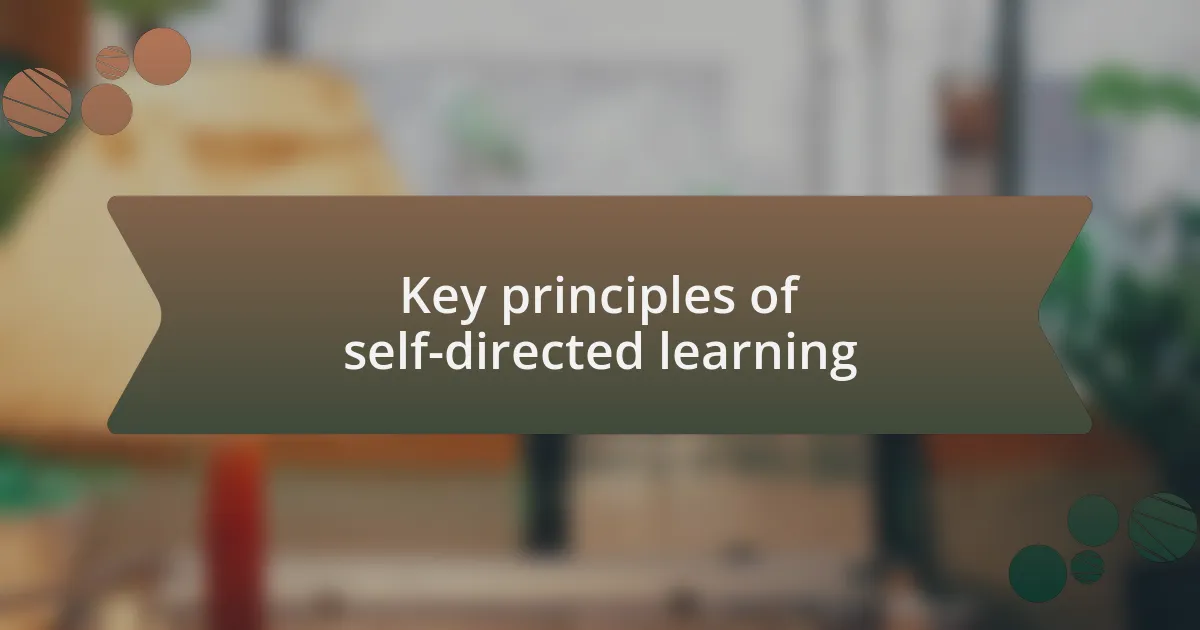
Key principles of self-directed learning
One key principle of self-directed learning is goal-setting. I remember when I decided to dive into coding; I initially felt overwhelmed by the vastness of the subject. To tackle this, I set specific, achievable goals like completing one online course per month. This focus kept me motivated and allowed me to measure my progress, transforming a daunting journey into manageable steps. Have you ever noticed how clarity in direction makes the path easier to navigate?
Another important aspect is self-assessment. I’ve found that regularly checking in on my own understanding not only reinforces my learning but also highlights gaps I need to fill. For instance, after finishing a project, I would take time to reflect on what worked and what didn’t. This practice has transformed challenges into learning opportunities, encouraging me to be more mindful of my learning process. Do you take the time to evaluate your own learning regularly?
Lastly, engagement in the learning process is vital. I vividly recall participating in online discussion groups where I could share my insights and gain feedback from others. This interaction made me feel connected and invested in my learning journey; it felt less like a solitary endeavor and more like a collaborative exploration. Have you ever experienced that thrill of learning alongside others? It’s truly remarkable how engagement can elevate our understanding and retention.
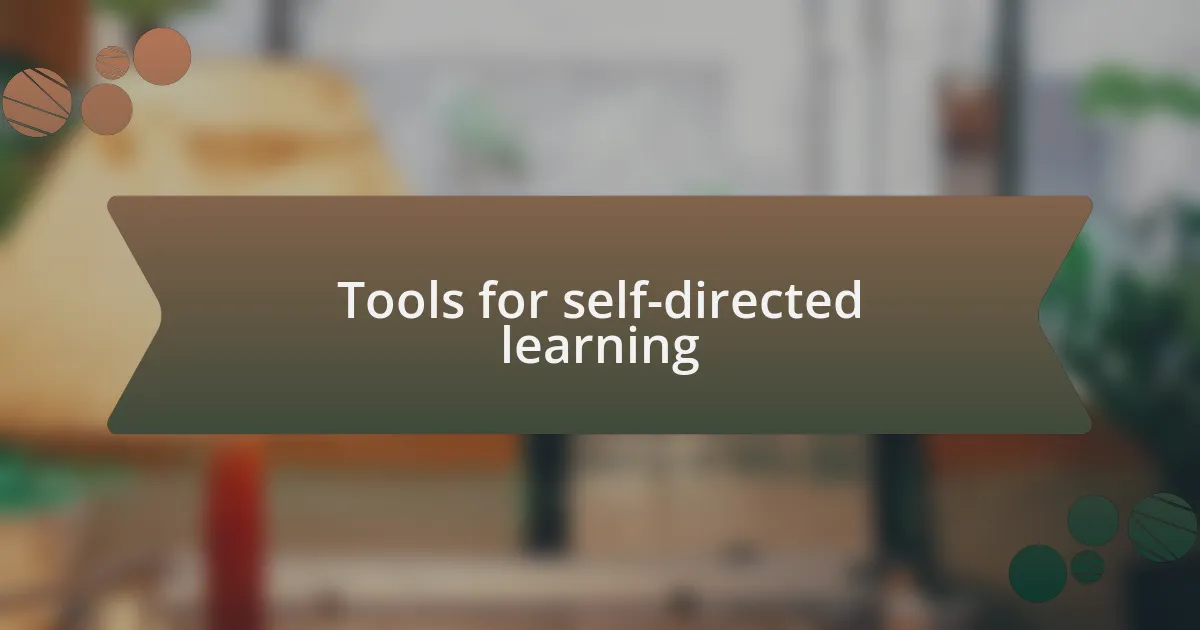
Tools for self-directed learning
Effective tools can significantly enhance self-directed learning. One of my go-to resources has been digital platforms like Coursera and Khan Academy. I remember the first time I completed a course on graphic design; the structured content and flexibility allowed me to learn at my own pace, and that sense of control felt empowering. Have you ever taken a course that made a complex topic feel more accessible?
Another tool I find incredibly useful is project-based learning. When I was learning about data analysis, I took on a personal project that required applying the concepts I was studying in a real-world context. This approach not only solidified my understanding but also gave me a sense of accomplishment as I could see my progress manifest in a tangible output. Can you recall a time when applying what you’ve learned made a significant difference in your comprehension?
Additionally, I swear by the use of note-taking apps like Notion or Evernote for organizing information. I can’t tell you how many times I’ve wanted to revisit a powerful insight from a book or an article. With these tools, I can quickly capture, categorize, and review my notes, which enhances my retention and understanding. Don’t you find that revisiting key ideas can sometimes spark even deeper insights into what you’ve learned?
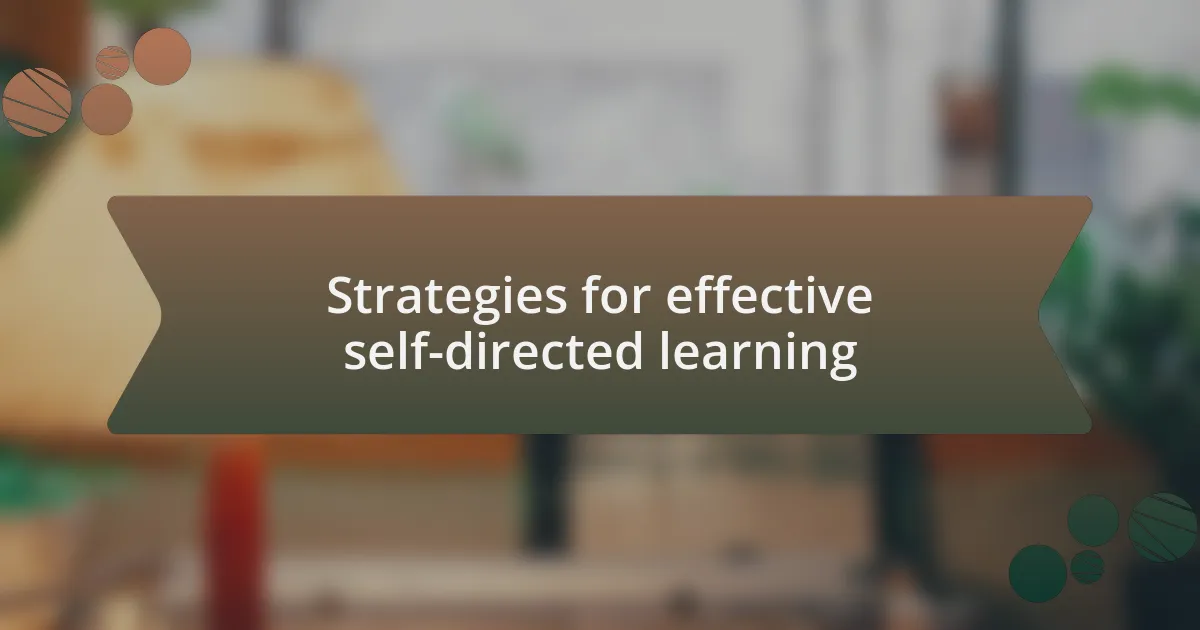
Strategies for effective self-directed learning
One strategy that I’ve found immensely beneficial is setting specific, achievable goals. For instance, when I embarked on learning a new language, I broke my overarching goal into smaller tasks, like mastering basic greetings or ordering food at a restaurant. Each completed task not only built my skills but also fueled my motivation. Have you ever noticed how small victories can propel you to tackle bigger challenges?
Another effective approach is creating a structured study schedule. I remember the days I was juggling multiple subjects. By dedicating specific blocks of time to each area, I felt more organized and focused. This structure not only minimized overwhelm but also made me look forward to each study session. Isn’t it amazing how a little planning can lead to a sense of freedom in your learning journey?
Engaging with a community of learners also amplifies the self-directed experience. During my self-study of coding, joining online forums and discussion groups was transformative. The exchange of ideas and support from peers not only clarified doubts but also sparked new interests I hadn’t considered before. Have you ever found that discussing your learnings with others deepens your understanding?